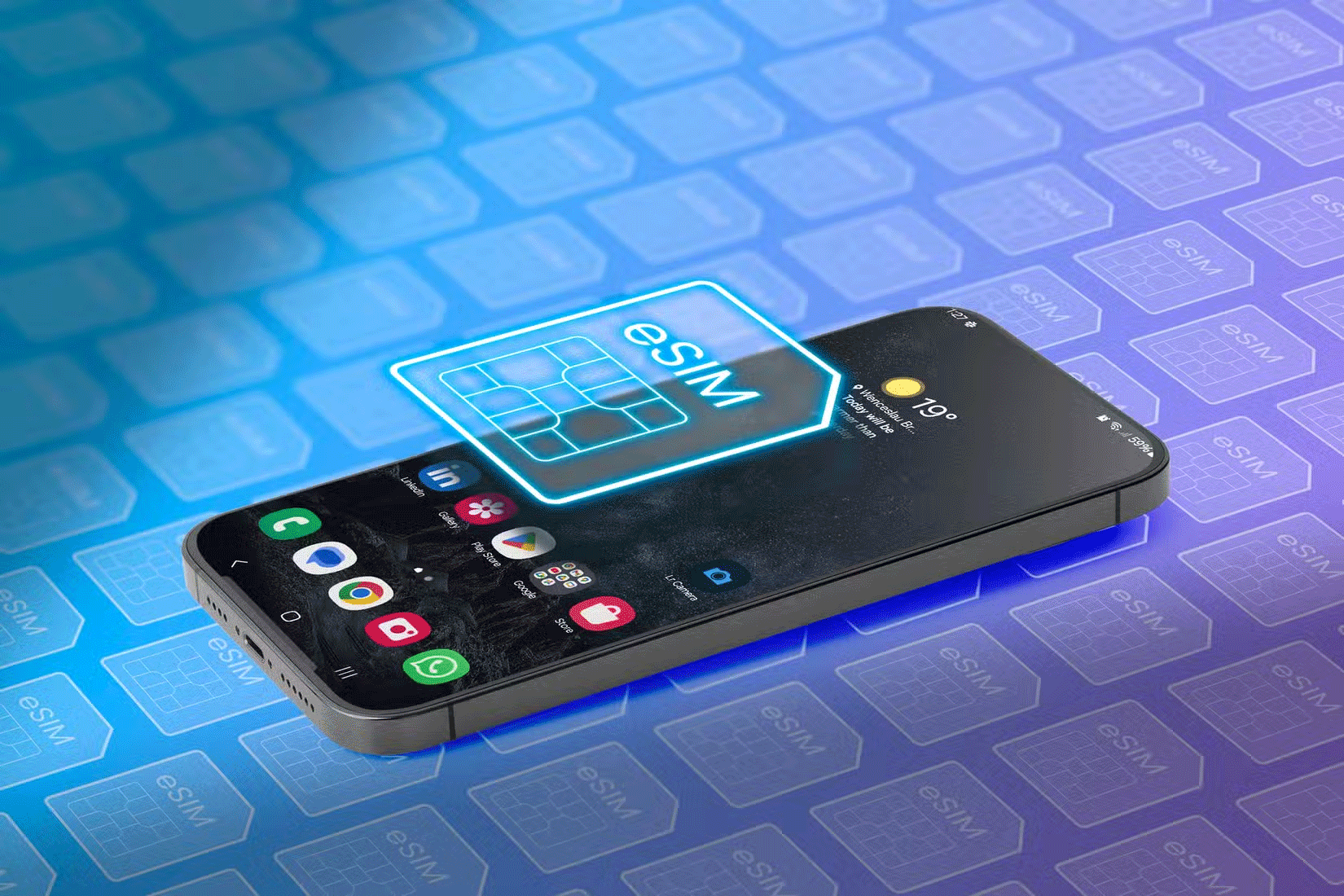4 reasons eSIM is more secure than physical SIM card
If you've ever removed a SIM card or worried about losing one, you know how inconvenient a physical SIM card can be. The advent of the eSIM, short for "embedded SIM," is built directly into your device, eliminating the need for a physical SIM card altogether. But beyond convenience, eSIMs offer security benefits that physical SIM cards can't match.
1. No physical card to lose or steal

One of the most obvious security advantages of an eSIM is that there is no physical card to lose or steal. A traditional SIM card can be easily removed from your phone if it is lost or stolen, giving someone access to your phone number and even your accounts.
With eSIM, this vulnerability is eliminated. eSIM is embedded directly into the device hardware, meaning there is nothing to physically remove or tamper with. Even if someone were able to gain access to your phone, the lack of a removable SIM card makes it harder for them to exploit your network or identity.
This also means no more fumbling with tiny SIM card trays or keeping spare SIMs in your wallet where they can easily be lost.
2. Easier to lock or deactivate remotely
Losing your phone is stressful enough, but with a physical SIM card, you have the added worry that someone might misuse it to make calls or send texts. While you can contact your carrier to deactivate your physical SIM card, this can take some time, leaving your information vulnerable in the meantime.
eSIMs eliminate this worry by making it easier to lock or deactivate your SIM remotely. For example, many carriers allow users to pause or deactivate their eSIM profile through online support or a mobile app. Once your identity is verified, the carrier can deactivate the eSIM almost instantly, cutting off access to your number and network.
Additionally, most modern smartphones that are eSIM-capable, such as iPhones or Android devices, come with built-in tools like Find My iPhone or Find My Device. These services allow you to remotely lock or erase your phone. If you choose to erase your device, the eSIM configuration is disabled at the same time, ensuring that it cannot be misused.
Some carriers even offer dedicated apps that allow users to manage their eSIM configuration directly. This means you can delete, pause, or transfer your eSIM to another device without having to retrieve your stolen phone. Combining these features ensures that eSIMs provide a faster, more secure way to protect your account if your phone is lost or stolen.
3. Harder to hack
Physical SIM cards have long been the target of scams like SIM swapping, where attackers trick your carrier into giving them a replacement SIM card. Once they have control of your SIM, they can intercept two-factor authentication codes, reset passwords, and even access sensitive accounts like banking apps.
eSIMs significantly reduce this risk. Because they are embedded directly into your device, porting an eSIM requires strict authentication protocols. Many carriers now require multi-factor authentication or in-person verification before making any changes to the eSIM configuration.
This additional layer of authentication closes a key vulnerability that has long existed in physical SIM cards. While no system is perfect, eSIMs make it significantly harder for attackers to compromise your phone number and personal information.
4. Better international travel security
Traveling internationally with a physical SIM card often involves swapping that SIM card for a local SIM card to avoid expensive roaming charges. This process not only leaves your primary SIM vulnerable to loss or damage, but also exposes you to potential security risks, such as tampering during storage or transport.
With eSIM, these concerns disappear. Many eSIM-compatible devices allow you to download and activate local carrier profiles remotely, often before you arrive in a new country. This means you can switch networks in minutes without having to deal with a physical SIM card.
What's more, eSIM allows you to maintain multiple profiles on one device. You can keep your main number active while adding temporary profiles for data or local calls. This dual functionality ensures you stay connected to your home and travel networks without compromising security.
For frequent travelers, this added convenience and security is invaluable. You can avoid the hassle of swapping physical SIMs while knowing that your main profile is securely stored and accessible to no one but you.
eSIMs offer a modern approach to mobile connectivity that prioritizes convenience and security. By eliminating physical SIM cards, they reduce risks such as theft, fraud, and accidental loss. Their remote management capabilities and resistance to common vulnerabilities make them a safer option, especially for those who value privacy and data protection. While traditional SIM cards have served well for decades, eSIM technology is clearly a significant step forward.
You should read it
- ★ Does Google Pixel 2 need no ordinary physical SIM?
- ★ Viettel is the first and only network operator in Vietnam to support eSIM according to Apple standards
- ★ The biggest downsides to switching to eSIM
- ★ MobiFone provides eSIM to customers in Vietnam
- ★ Why does Microsoft's mobile future depend on eSIM?